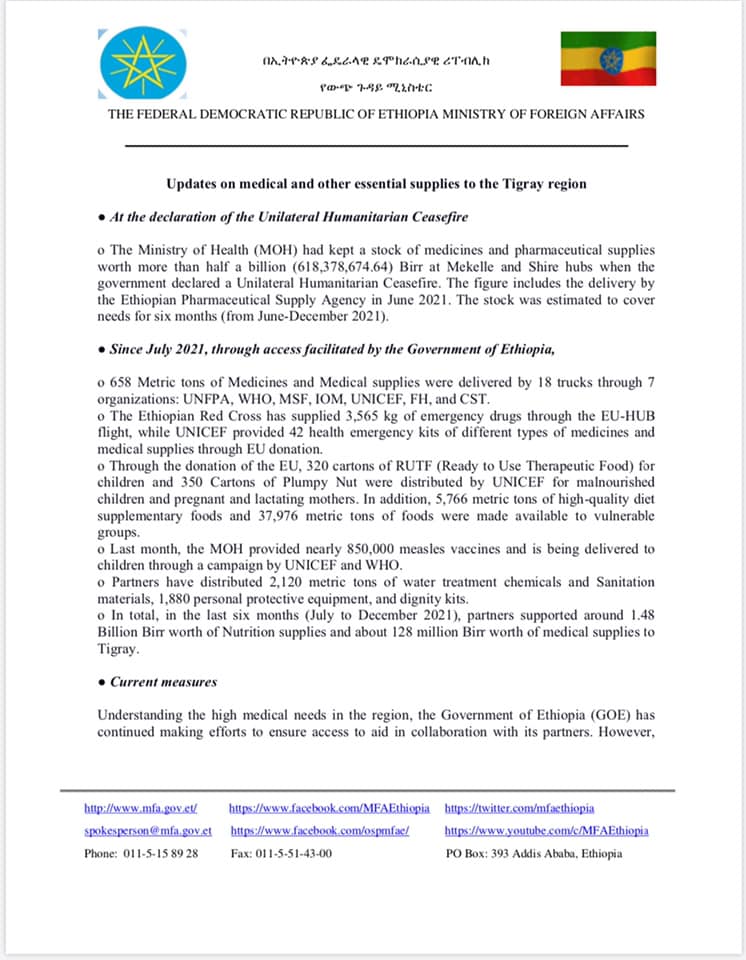- At the declaration of the Unilateral Humanitarian Ceasefire
o The Ministry of Health (MOH) had kept a stock of medicines and pharmaceutical supplies worth more than half a billion (618,378,674.64) Birr at Mekelle and Shire hubs when the government declared a Unilateral Humanitarian Ceasefire. The figure includes the delivery by the Ethiopian Pharmaceutical Supply Agency in June 2021. The stock was estimated to cover needs for six months (from June-December 2021).
● Since July 2021, through access facilitated by the Government of Ethiopia,
o 658 Metric tons of Medicines and Medical supplies were delivered by 18 trucks through 7 organizations: UNFPA, WHO, MSF, IOM, UNICEF, FH, and CST.
o The Ethiopian Red Cross has supplied 3,565 kg of emergency drugs through the EU-HUB flight, while UNICEF provided 42 health emergency kits of different types of medicines and medical supplies through EU donation.
o Through the donation of the EU, 320 cartons of RUTF (Ready to Use Therapeutic Food) for children and 350 Cartons of Plumpy Nut were distributed by UNICEF for malnourished children and pregnant and lactating mothers. In addition, 5,766 metric tons of high-quality diet supplementary foods and 37,976 metric tons of foods were made available to vulnerable groups.
o Last month, the MOH provided nearly 850,000 measles vaccines and is being delivered to children through a campaign by UNICEF and WHO.
o Partners have distributed 2,120 metric tons of water treatment chemicals and Sanitation materials, 1,880 personal protective equipment, and dignity kits.
o In total, in the last six months (July to December 2021), partners supported around 1.48 Billion Birr worth of Nutrition supplies and about 128 million Birr worth of medical supplies to Tigray.
● Current measures
Understanding the high medical needs in the region, the Government of Ethiopia (GOE) has continued making efforts to ensure access to aid in collaboration with its partners. However, those approved to deliver medicines and supplies since last month ould not pass Abala due to the TPLF renewed aggression.
Taking needs and challenges into account, the GOE has decided to facilitate additional flights to augment the land transportation of medical aid and other food and essential supplies. Accordingly, the Ministry of Foreign Affairs, MOH, and the National Disaster Risk Management Commission are working with ICRC and other UN partners to facilitate daily cargo flights to transport much-needed medicines and supplies. The MOH is also working on using such flights to deliver vital medications and supplies that are not in the possession of partners.
It is to be recalled that the GOE has also provided a blanket amnesty to truck drivers and created a buffer area to be run by the UN humanitarian agencies.
23 January 2022




